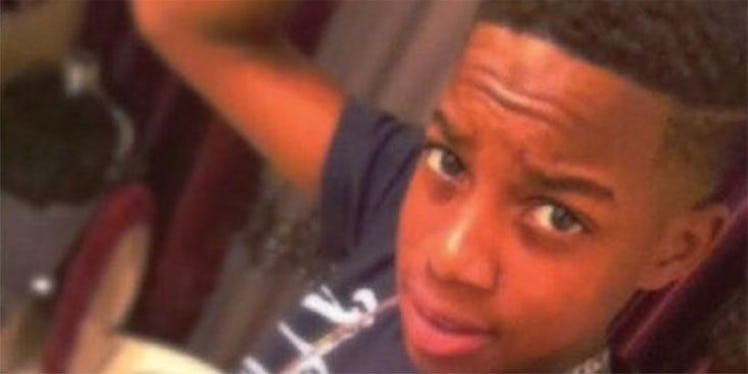
It Doesn't Matter If Jordan Edwards Was A Good Student When Police Killed Him
Jordan Edwards was just an innocent teenager who was sitting in the passenger seat of a car driving away from police on Saturday night.
Nevertheless, Edwards still ended up dying in front of his brother's eyes after an officer fired at the car, hitting Edwards in the back.
A statement from Edwards' family read,
Not only have Jordan's brothers lost their best friend; they witnessed firsthand his violent, senseless, murder. Their young lives will forever be altered. No one, let alone young children, should witness such horrific, unexplainable, violence.
Since the shooting, the firing officer has been placed on administrative leave, the police chief has spoken apologetically and no charges have been filed any of the people who were in the car with Edwards.
Considering the facts, there's no doubt that the killing of 15-year-old Jordan Edwards is a true tragedy.
However, as is always the case with questionable police shootings that involve black victims, there does seem to be a doubt about something else: the amount of sympathy we should have for Edwards.
One would suspect that's the reason some people would feel the need to point out that Edwards was one of the "good kids." It's important, some might feel, to point out that this victim is not like the others.
This victim had a bright future, was going places and had the grades to prove it.
Those facts only matter, though, if we accept that there's some standard of respectability or achievement certain victims must meet before we decide they didn't deserve to die.
And if that standard does exist (which it very much seems to, sadly) then this isn't the time to point out Edwards' athletic status or GPA. On the contrary, it's the perfect time to point out the opposite.
Whether any victim meets our arbitrary definition of what makes a person "good" will always be besides the point when police shootings like these arise.
The actual point is this: People, even the "bad" ones, deserve to have their humanity be respected. When it isn't, we have to ask why.
In answering this question, it shouldn't take straight A's to sway us in the right direction, either.
Of course, to be fair, there's a perfectly understandable reason why some might want to point out how great a person Edwards was thought to be.
We react to different deaths in different ways all the time. The death of a famous pop star draws more reactions than death of the unknown neighbor.
It's a basic fact of life: People are prompted to feel more remorse when we lose people who we feel could have contributed more to society.
There's often a difference, though, when it comes to deaths involving black lives. When non-people of color without certain achievements to their name die, it might draw apathy, at worst.
When a black person dies without a certain level of achievement to their name, there's always a fear that their killing will be justified.
The Edwards' family lawyer even tried to preempt those justifications. Attorney Lee Merritt said,
We've heard excuses before in the past: You know why it happens, because the dads aren't present. That excuse isn't here. Or the kid was violent. That excuse isn't present here.
Still, the questions of whether Edwards had a father in the picture, had good grades or played sports are all borderline irrelevant. What matters is that he was another innocent person who died at the hands of the law, unjustly.
Now matter how high or low his GPA was, it won't change the bottom line: What happened to Jordan Edwards, and others like him, is still wrong.
Citations: 15-year-old's brothers watched him die after Balch Springs police shooting, family says (Dallas News)